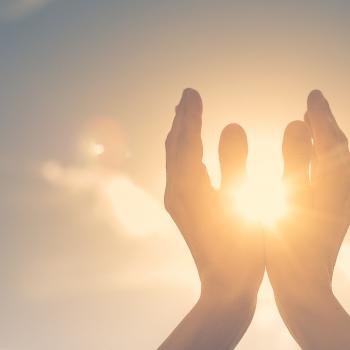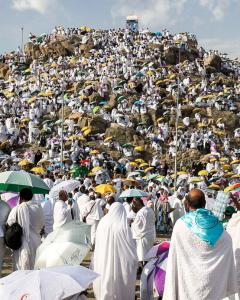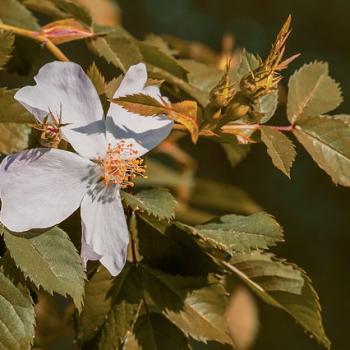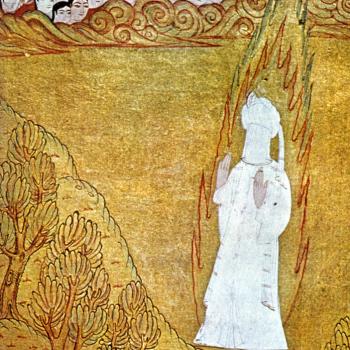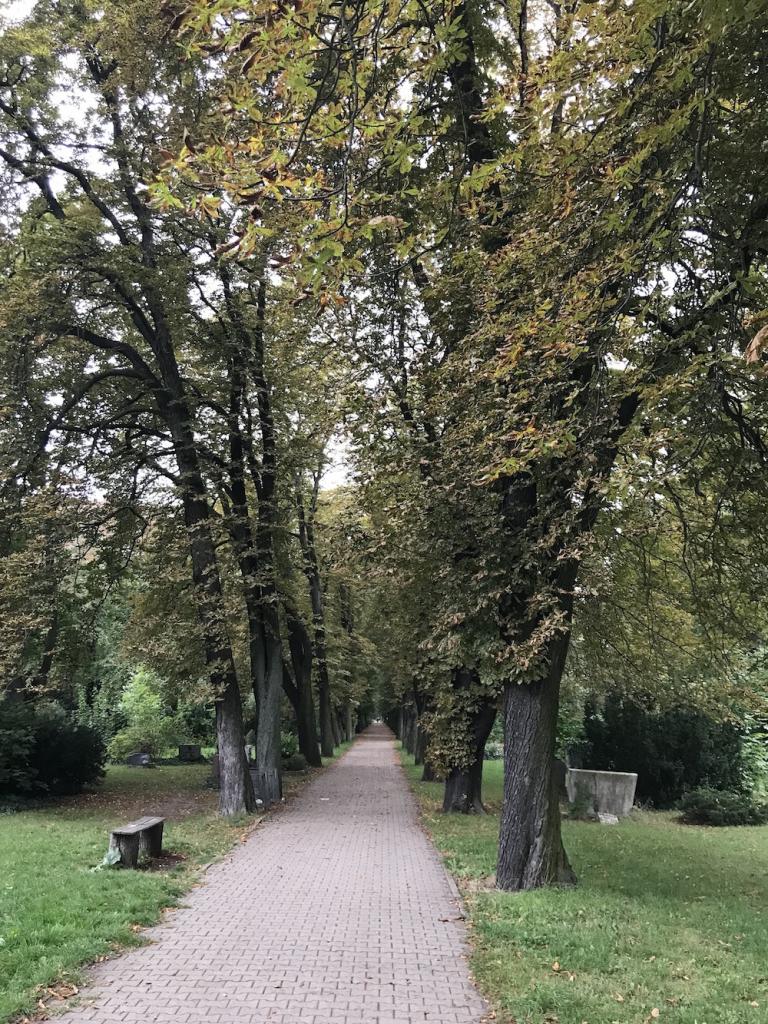 On a Friday afternoon in mid-June, I found myself at the Sankt-Jakobi Friedhof, a cemetery transitioning into new life as the Prinzessinnengärten community garden. It is an unexpected swathe of green and quiet in the midst of Berlin’s gritty Neukölln neighbourhood. From the little hut at the gate I walked past the graves until I came to a field with raised beds, to where a group of volunteers was sitting around a weathered picnic table. Some of them were eating their lunches out of reusable containers. Others smoked and chatted. I sat down and introduced myself.
On a Friday afternoon in mid-June, I found myself at the Sankt-Jakobi Friedhof, a cemetery transitioning into new life as the Prinzessinnengärten community garden. It is an unexpected swathe of green and quiet in the midst of Berlin’s gritty Neukölln neighbourhood. From the little hut at the gate I walked past the graves until I came to a field with raised beds, to where a group of volunteers was sitting around a weathered picnic table. Some of them were eating their lunches out of reusable containers. Others smoked and chatted. I sat down and introduced myself.
“Do you want to do a project here?” one of them asked.
“Ah, no, I just want to get involved because I’m interested in community gardens,” I replied.
The dandelions sprouting out of the center of the picnic table seemed to give me a wink. Is that so?
When I moved to Berlin earlier this year, the one thing I felt sure of was the need to connect with a social green space. An urban garden would provide a way to be with plants and perhaps find a few kindred spirits among the residents of my new city. Most of all, I hoped a community garden would provide real-world community, something I had missed deeply through a year and a half of isolation in the pandemic, while I was still living in the Czech Republic. Thank God our Threshold Society circles still met on Zoom during that time! Otherwise, I had turned to the living world for solace. Visits from coal tits, blackbirds and robins to the bird bath on my terrace were the highlights of my forever day of lockdown. I also made friends with trees in Prague’s parks: chatting with them, hugging them and dreaming with them. I was grateful for their company. (Sometimes I even felt they hugged me back.) Part of me didn’t care if people thought I was a mad tree lady. But another part of me could feel I was teetering on the edge of something no longer normal.
To regain my balance I needed to be with other people in person, doing real things in the physical world. And I knew this not in some abstract, that-would-probably-be-a-good-idea sort of way, but factually, through my own research. I had spent a good six months of lockdown working on a self-assigned paper on the history of social and therapeutic horticulture. Gardening had been repeatedly shown to have profound effects on trauma and mental ill health, from the first World War I veterans diagnosed with “shell shock” to those with PTSD in our own time, as well as people struggling with anxiety and depression in general. I was eager to try out this particular form of therapy for myself.
What I didn’t anticipate was that going to the community garden would turn into an encounter with the Garden of our tradition.
In the flowering meadows of the gardens
will be those who have come to faith
and have done the deeds of wholeness and reconciliation:
all that they might desire shall they have with their Sustainer:
this, this is the magnificent abundance—
that of which God gives the glad tidings
to those of His/Her servants who come into faith
and do healthful deeds of wholeness.
(Qur’an 42:22-23; translated by Camille Helminski)
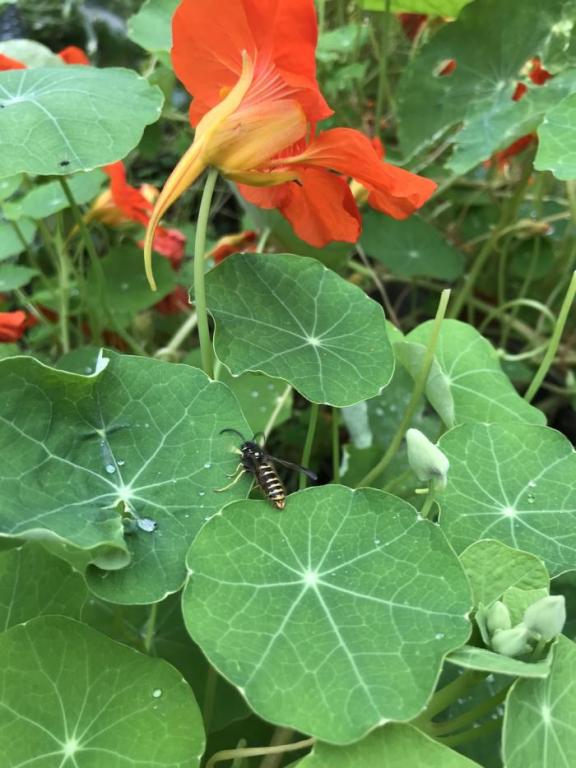
The standard interpretation of Jannah is a realm of Paradise, the bliss awarded to the faithful after death. But as Kabir Dede observes in The House of Remembering, it is also a state that can be experienced in life, upon awakening into Oneness.
The Qur’an says, The Garden will be brought near to all those who are in a state of God-consciousness. To all those who deepen in their remembrance, deepen in presence, The Garden will be brought near.
For us it’s not two worlds. The two worlds are simultaneous and inter-penetrating. It’s not that we don’t consider where we will be after we leave this physical body. But here and now, heaven and earth, also have the potential to combine.
For me, bringing heaven to earth would mean knowing I am indissolubly connected to The Source: a state where fear, doubt and lack are understood as illusions of the false self, and the abundance and generosity of the Divine are what is most real.
How has the garden in Berlin started to show me that? It has been very subtle. Rather than a lightning-flash download, it comes in little moments. There are moments of awe, as I witness the miracle of seeds sprouting and growing into plants. I find myself saying Subhan Allah, too, every time I discover all of the different ummahs of creatures that live among the plants and the soil: the earthworms, exulting in the dirt, and the katydids, ladybugs and moths hopping and flying from leaf to leaf. At the same time, the garden also shows me my own heedlessness and lack of presence. I catch myself hurrying through tasks like repotting seedlings, weeding or harvesting vegetables, as though these were mechanical chores instead of opportunities to connect with the living world and offer gratitude to the Sustainer of all that is. The garden is a mirror. The moments of awareness that I experience when I am there remind me of being with friends on the Path, when we are on retreat or pilgrimage, and everything we talk about or do together takes on a heightened sense of meaning.
Over and over again, I feel I am being told: what you are doing here isn’t just what it appears to be on the surface. I hear echoes of Mevlana’s advice to open the inner eye and read the signs of creation through spiritual perception.
Since you have perceived the dust of forms,
perceive the wind that moves them;
since you have perceived the foam,
perceive the ocean of Creative Energy.
Come, perceive it, for in you
insight is all that matters;
the rest is just fat and flesh,
a weft and warp of bones and muscle.
Your fat never increased the light in candles;
your flesh never became roast-meat
for someone drunk with spiritual wine.
Dissolve this whole body of yours into vision:
pass into sight, pass into sight, pass into sight!
One sight perceives only two yards ahead;
another sight has beheld the two worlds
and the Face of the King.
Between these two is an incalculable difference:
seek the remedy of vision,
and God knows best what is hidden.
(Masnavi VI, 1460-1465)
The garden is a sacred space for me. I say a private destur, an invitation, each time I step through the gate to remind myself I am entering a place that is a refuge from the dunya: where an intention to cultivate inclusivity, connection and generosity holds sway over selfishness and separation. That doesn’t mean bad things don’t happen. On one communal work day when I was harvesting in the fields, an angry neighbor shoved and screamed at several of the female volunteers. There are off-leash dogs and stinging insects to watch out for. And because the garden is a public space in an urban area, tools get stolen, the sheds get broken into, and windows get smashed. But somehow the quality of a refuge still manifests. I think a big part of that comes from a community holding the space rather than fences or law enforcement. If someone is hurt, others come to help. If there is a need, it can be witnessed and met by the group.
And then there is the garden itself. It’s not just a green space in the middle of a tough neighborhood. It’s a community garden in a cemetery. What better metaphor could there be for resurrection in this life?
A garden is healing because it is a prism of wholeness: a place where birth, death and rebirth can be witnessed as different facets within the unity of Being. Life is a circle, not a line. For me, it also feels like the garden is a symbol of paradise because it reminds me of who and what we are as humans: creatures of humus, the soil. On one hand, that image inspires humility and reliance on our Sustainer, if I think of myself as not so very different from ants and earthworms! At the same time, there is a sense of awe in the awareness that, as sparks of the Divine, we human beings are seeds of infinite potential. There are worlds within us and worlds that can manifest through us.
What I feel I am learning from the garden is that, just like the seeds of plants, we are only hard kernels of possibility unless we connect with the conditions of growth and transformation. We need to draw on elemental forces earth, wind, water and fire—to gain strength and knowledge; we need darkness as well as light to be activated; and most of all, we need each other to root, blossom and bear fruit. Mevlana says:
When a seed falls into the ground,
it germinates, grows, and becomes a tree:
if you understand these symbols,
you’ll follow us, and fall to the ground, with us.


